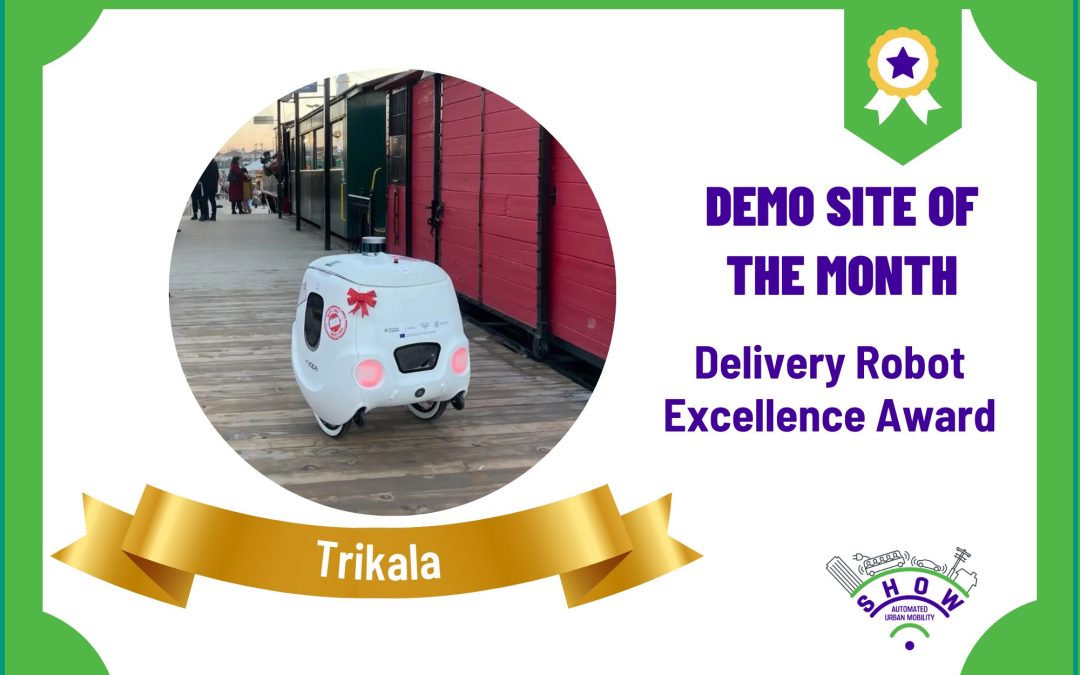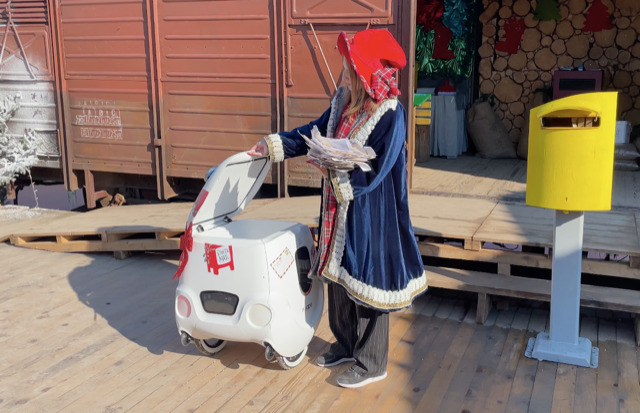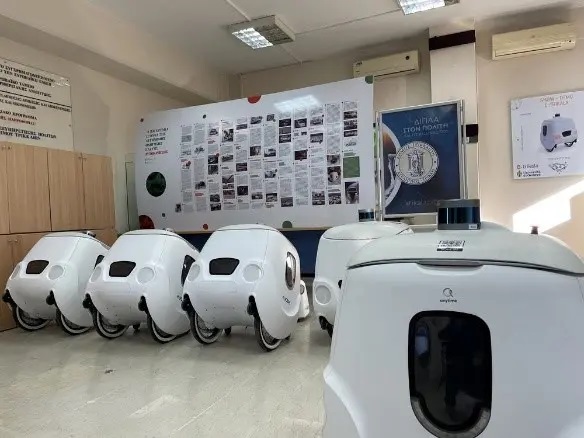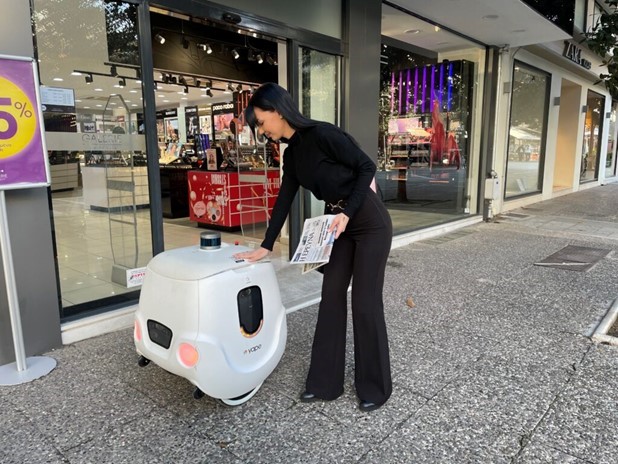
Recognising the great work that is being done by the sites, SHOW has launched the SHOW Demo Awards. Each month, one site will receive a well-deserved spotlight, highlighting what has been done to advance mobility in the region.
The ‘Delivery Robot Excellence Award’ goes to…. Trikala!
The award highlights the achievement of our partners in Trikala: ICCS (The Institute of Communication and Computer Systems), eTrikala and the University of Genoa (UNIGE). Together they oversaw a fleet of small ‘Yape’ robots complementing logistics services in the city. We spoke to Anna Antonakopoulou, Senior Project Manager at ICCS, about how the automated service has advanced logistics services in the area.
Can you tell us a bit about the delivery robot and the automated mobility service used in Trikala?
The demo in Trikala was about the integration of a delivery robots fleet into the delivery services of the city to serve local stakeholders’ needs. The demo included four partners: ICCS, which was the site lead, eTrikala which acted as the local site leader responsible for setting up the digital and physical infrastructure and performing the deliveries, UNIGE that was responsible for the planning and operation of the logistics services’ and finally YAPE company (external) which provided part of the autonomous delivery robots fleet.
The Logistics Service has been executed in the pedestrian area of the city center. It was free of charge and was supervised remotely via a control center and fleet management tools. The delivery of small parcels and goods to local stakeholders was carried out via a dedicated booking application.
The demo included different use case. In Trikala’s ‘Christmas Park’, Yape collected Christmas letters from the post Office and delivered them to Santa’s house. A dedicated wooden path was constructed specially for the Yapes to reach Santa’s house. The distance between the post office and Santa’s house was approximately 500 meters. Visibility has been gained from 1.000.000 visitors of the Thematic Park during Christmas 2022.

Delivery of Christmas letters in Trikala
The second use case focused on delivery of items from the Town Hall to local retailers for daily refilling. The route was completely within the pedestrian area and the same for both outward and return journeys. There were no road intersections and the service was dedicated to coffee residual collection. Yapes collected coffee residuals from the coffee shops in the area and delivered them to the deport/control room. The overall round trip distance was approximately 3200 meters. The service continued with the delivery of newspapers. Yapes delivered newspapers to the shopkeepers, starting from the deport/control room. The path was circular, and the overall round-trip length was approximately 2.5 Km with 24 stops defined along the path.
The vehicle runs in very close proximity to the people on the street. What has been the reaction of citizens?
Trikala citizens are very willing to use innovative services that promote safety, multimodality and sustainability. Therefore, they accepted very well the new kind of service and they were very curious about this new type of vehicles introduced within the pedestrian area. Additionally, coffee shop owners very much liked the service, as well as the special booking system. Furthermore, the most common feedback from all shopkeepers was that they liked the delivery method and they found it easy to receive the goods. Finally, most of the shopkeepers suggested to make the robot come inside the shop to the cashiers’ desk to make the deliveries/collections.

Did you run into any challenges?
In order to identify the services and specifically the delivery of products to kiosks from suppliers, test deliveries to kiosks have been performed while seeking agreements with supply chain actors to integrate the fleet of Yapes. It was then not possible to define these agreements and thus to integrate delivery robots into current distribution services.
Also the initial service design included mixed traffic route as well as bike lanes. However the low speed of the robots in combination with several narrow parts on the bike lane network as well as the fact that the legislation framework was not ready to specify these interactions with cars and bikes, the pedestrian area and the aforementioned services were chosen for the pilot demo as a first step towards the introduction of this new kind of autonomous logistic services in the city of Trikala.
What are the next steps of the demo?
Trikala is interested in the commercial operation of the CCAM services for logistics. There is active interest to use more and new vehicles with new functionalities and engage more and new stakeholders.
However, the institutional framework needs to be further improved for allowing the commercial use of automated mobility services. For this, relevant discussion with the political sector is already held. Authorities are also already convinced that automated mobility solutions are already within reach – they consider actual deployment of automated transport solutions in future and are investing in smart infrastructure through national and local public funding.
The main focus in Trikala now is to make automated vehicles more attractive by associating them to the supply chain. The predominant impact is the successful investigation of how AVs can be used via on demand services serving pedestrian areas, thus complementing logistics supply chain to then proceed to actual commercial deployment. Finally, follow-up activities together with stakeholders such as “ELTA COURIER” and “ACS” are investigated.
